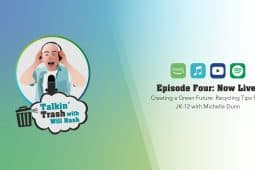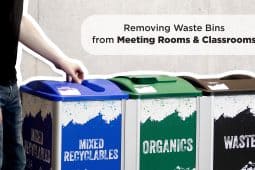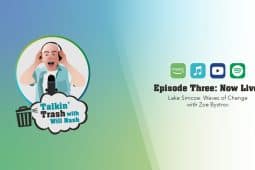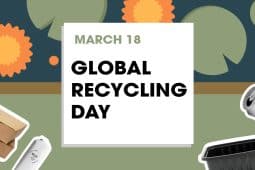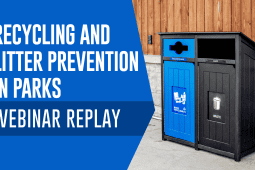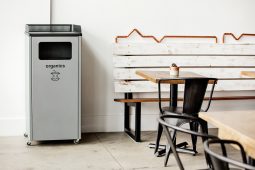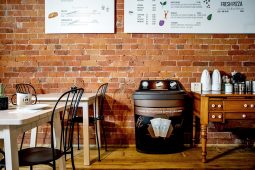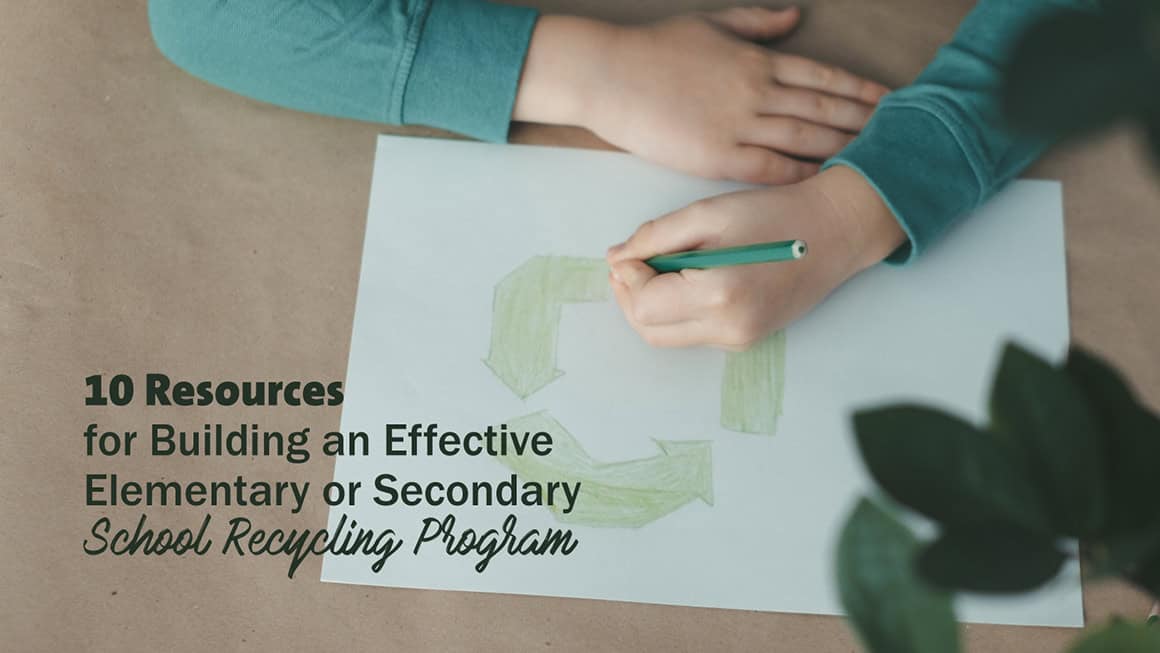
October 15, 2024 By Kerstin Mayer No Comments
Starting a recycling program for your school is a no-brainer. Elementary & secondary schools have a lot of staff and students that create a high volume of waste, and a large proportion of waste generated from school grounds can be diverted from landfills. Not to mention, developing the next generation of Reducer’s, Re-user’s & Recycler’s is paramount to the continued success of recycling programs across North America.
Standardize your program, add more recycling stations, reduce contamination—these are all the typical phrases you’ll hear in the recycling community about how to improve diversion rates and reduce costs for your elementary or secondary school. Although these practices are tried and true, there are many moving parts to each that makes tackling them successfully a little more difficult—but that’s where you come in!
The team at Busch Systems has put together the following essential list of 10 best resources to help you learn how to run a spectacular school recycling & waste management program. Even better, they’re all free!
If you know of some more resources that can help us further educate, please comment below with your suggestions and we’ll add them to the list. And don’t forget to bookmark this page, so you can refer back to it when you’ve got some more time to brush up on your recycling & waste management skills for your school.
1. Tools to Reduce Waste in Schools – EPA
Not sure where to start with waste and recycling in your school? Check out this guide published by the US Environmental Protection Agency. This guide was developed as an easy-to-use tool to help schools and school districts implement new, or expand upon existing, waste reduction programs! Explore the benefits of waste reduction and find tips that apply to your unique situation.
2. Reuse + Recycling = Waste Reduction; A Guide for Schools and Groups – EPA
Want more specifics on how to apply reuse in your waste reduction program? Use this EPA guide to learn more about increasing the flow of reusable and recyclable materials, and even how to generate extra funds for school departments! This guide is built around getting you amped-up to make a difference in your school district.
3. Clark County Green Schools Resources
Clark County has put together some educator toolkits full of helpful downloads you can use at your school! Get your students involved in creating a Green Team, learning about composting, and getting food waste prevention programs set up in your lunchroom with these helpful resources and activities.
4. Best Management Practices (BMP) Guide – Montgomery County Public Schools
This helpful guide was developed by the Montgomery County Public Schools School Energy and Recycling Team (SERT) to provide more information on how to maintain a clean, safe, and healthy learning environment by reducing energy and water consumption while increasing recycling rates within facilities. Scroll through the whole document for helpful sustainability tips or skip right to page 34 to read more about recycling and waste management.
5. A Guide to Starting a Composting Program in Your School
Looking to implement composting in your school? Green Mountain Farm to School has developed a comprehensive guide with step-by-step instructions on how to make your composting dreams come to life. Check out this guide to learn more about the benefits of composting, health and safety, and how to get started with both on-site and off-site composting.
6. Recycling & Waste Reduction Education Ideas to Inspire K-12 School Students
Once your program is in place, you may be wondering “How in the world am I supposed to get my second graders to recycling?”. Whether they’re in second grade, kindergarten, or all the way up to grade 12, there are specific messages and educational tools you can use to promote recycling and waste reduction behaviors in children. Check out this blog by Alec Cooley, Senior Sustainability Advisor here at Busch Systems, which dives into depth on how to educate children and inspire the waste reduction behavior you need to make your program a success.
7. Aiming for Extra Credit with K-12 Recycling and Waste Reduction Webinar
If you found Alec’s blog helpful, you’ll like this webinar even more! Successful K-12 waste reduction programs require well planned strategies to address issues as diverse as collection equipment and logistics, working with stakeholders, data tracking, food waste, and most importantly, guiding students and staff on how to participate. Check out this Busch Systems Webinar to learn all that and more on building a high-achieving program that leads to high diversion rates.
8. A Roadmap to Reducing and Recovering Surplus Food in Schools
Does your school struggle with surplus cafeteria food and what to do with it? Starting a food reduction and recovery program to support your waste diversion goals may seem daunting, but with the right support and guidance these programs can be implemented in schools with relatively low costs. Check out this guide for best practices and resources on managing surplus food.
9. Ditching Disposables Toolkit
Looking to integrate more reusable food ware into your school to reduce waste? Check out this toolkit – its designed to help your school make the transition from harmful, single-use food service ware to healthier, more sustainable alternatives. Increase student health, lower costs, and reduce waste generation with this helpful toolkit!
10. At-Home Learning Resources
Looking for resources and learning opportunities students can do at home to help with their knowledge of sustainability and waste reduction? Check out this webpage from EarthGen, which provides elementary and middle school recourses so students can practice math and writing schools while learning more about where their waste goes.
And there you have it! Plenty of resources to get your journey to sustainable waste management started or help enhance the one you’re on. We’ll continue to update this page as we see more great information come down the pipe. And again, if you think we’ve missed some more resources, feel free to comment below.



